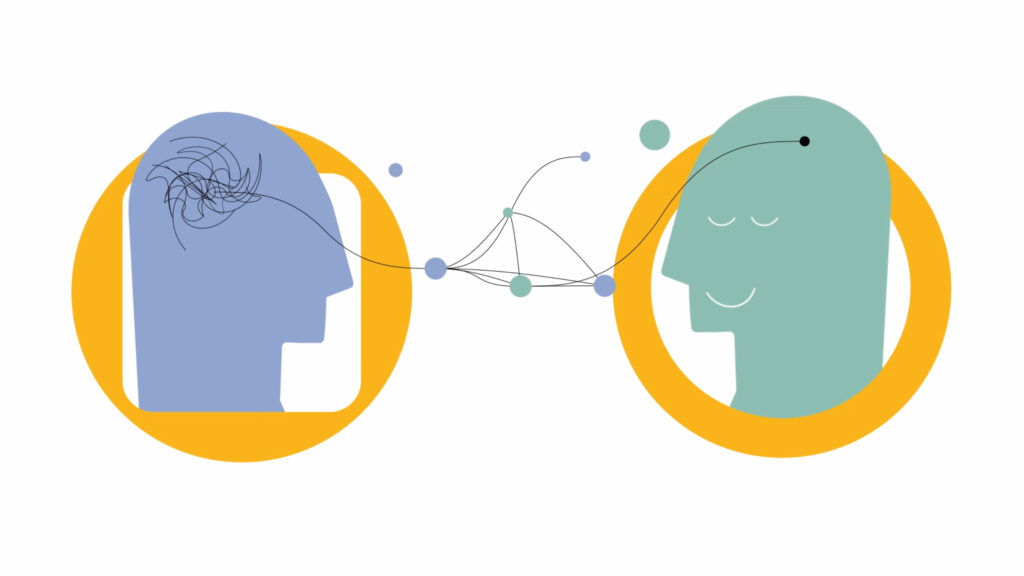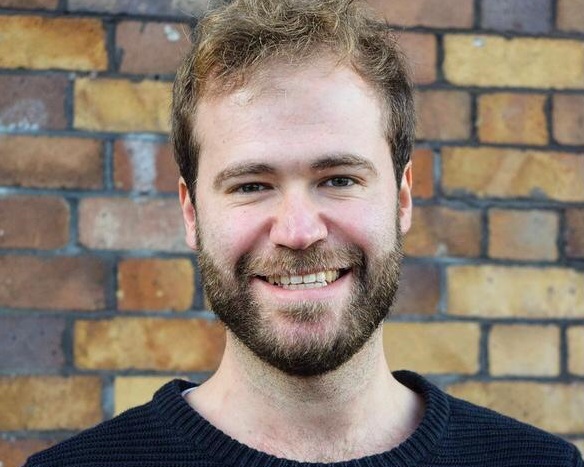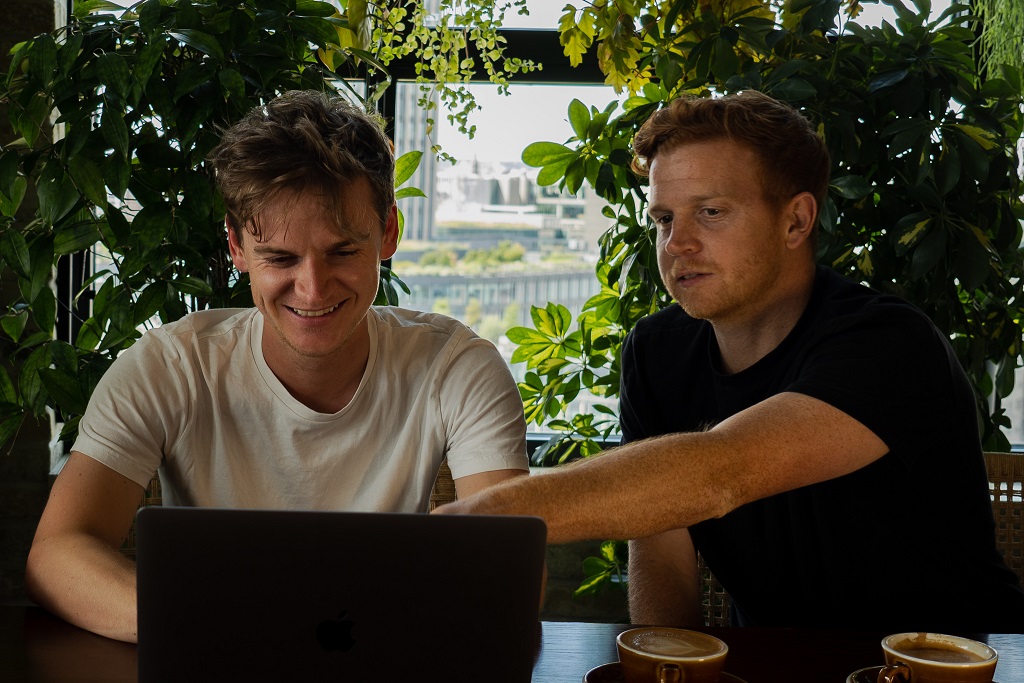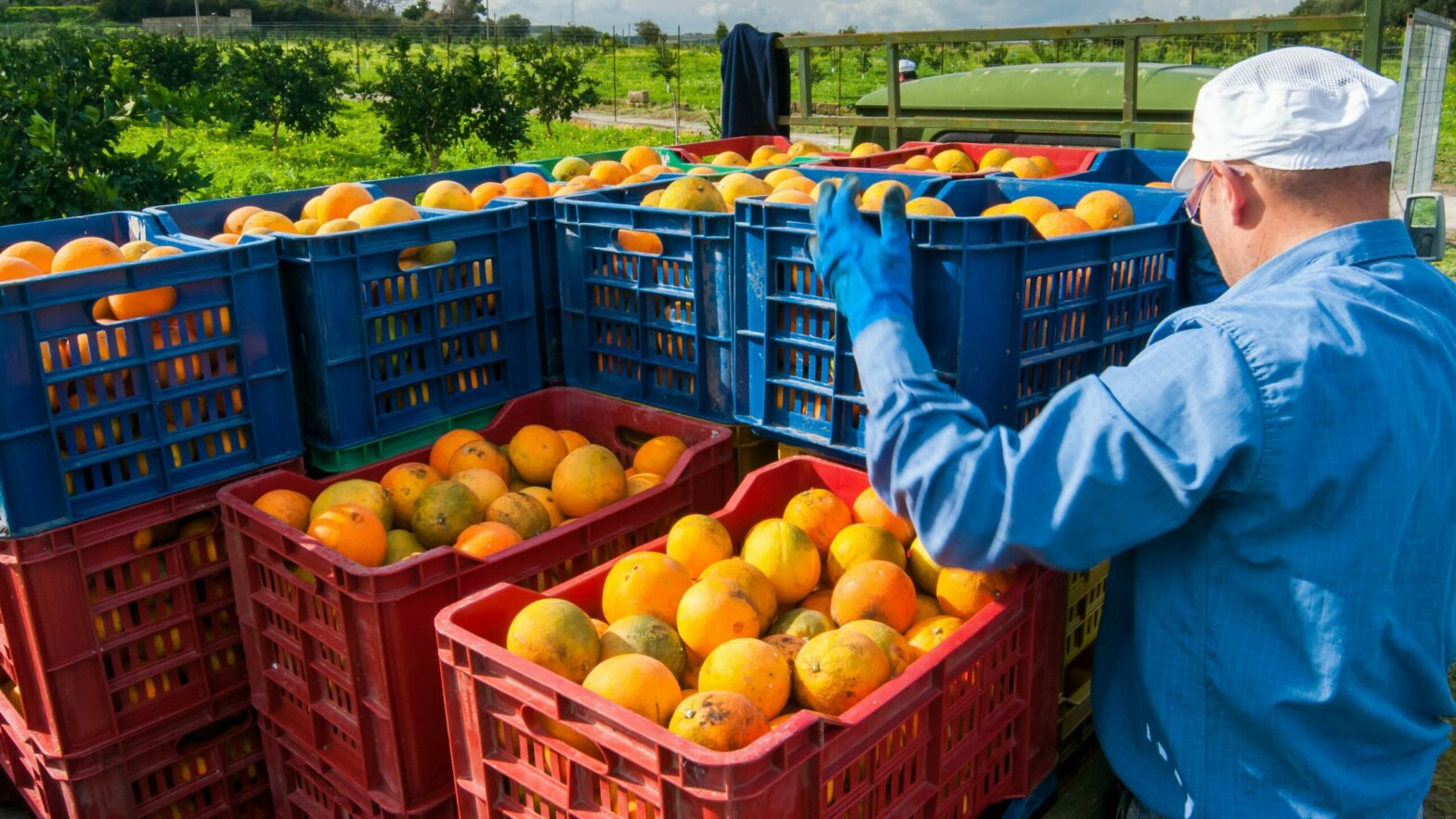Employers are increasingly committed – at least publicly – to improving workplace mental health, but what does the reality of that look like?
Whilst a growing number of businesses are introducing Employee Assistance Programmes, there has been lots of criticism that they are simply a box-ticking exercise.
After experiencing his own personal mental health challenges, Matthew Vamplew sought therapy privately and found the process of finding the right support both inaccessible and complicated. Matthew knew there had to be a better way to bridge the gap between the need for help and the vast number of qualified therapists and mental health practitioners.
Here, he talks to Small Business about the inspiration for his matching minds platform, the challenges of transitioning from a prototype to a scalable tech solution and why it’s OK to be vulnerable in business.
So, tell me a bit about your background and what you were doing before starting Paranimo?
My background is in innovation management. I graduated in 2012 and began working for a technology consulting firm where I worked with emerging technology to solve business problems in the insurance industry. This gave me an interesting insight into the world of innovation. What really got me into the world of entrepreneurship was my next role with a management consultancy company. I was there to set up the innovation function within their insurance consulting team where I got a chance to work in an insurance startup incubator.
I then moved into being an innovation manager in my own right and was involved with incubating and accelerating new ideas with fintech, lawtech and insurtech startups. I’d find myself out talking to entrepreneurs on a weekly basis to try and co-launch innovative new ideas in the form of a proof of concepts. That proof of concept would then form a business case which may or may not get the green light. It was a useful experience and showed me what it takes to launch a new idea!
I’ve always wanted to start my own company and that ambition followed me throughout my career. And I’ve since used all the skills I learnt to help launch Paranimo.
What does Paranimo do? What big issue is it trying to solve?
The story behind the company came from own experience of seeking mental health support back in late 2018. I found it hard and pretty stressful to find the right mental health support provider (counsellor or psychotherapist) and get that right “match” i.e. someone that had relevant experience and I could get on with and trust. There’s no rulebook, and the current models involve you going through directories where there are loads of counsellors and psychotherapists listed. And they all say that they’re good at everything, because that gives them the highest chance of getting business. But the reality is, how do you choose who’s right for you? It’s trial and error and there’s potentially lots of time and cost wasted.
So I thought, what if there could be a way to match people to the right mental health support? I couldn’t stop thinking about the idea. I spoke to therapists and to people that had gone for support, and they all said it would be beneficial for both sides of the spectrum. I then explored the idea with my now co-founder, Dan (he was doing a PhD in neuroscience at the time), and together we founded Paranimo which in Latin means “match minds” – setting the foundations for the company and its purpose.

As a company, we help organisations (and we work mostly with tech-driven SMEs) to improve workplace mental health and wellbeing through two SaaS offerings called Personal Wellbeing and Burnout Insight and a consulting service we call Cultural Wellbeing.
Our flagship Personal Wellbeing solution focuses on matching employees to the right mental health support, using our matching intelligence system, so they feel better faster. The effectiveness of our Personal Wellbeing solution is backed by primary research. We conducted a three-month pilot study with 25 people. The result: 93.3% of therapy users found a counsellor who matched their needs with an average reduction of 58% anxiety, 51% irritability and 40% depression after therapy! This solution was inspired by own experience of seeking mental health support back in 2018.
Burnout insight is a SaaS solution that integrates with digital communication tools like Microsoft teams and slack, operating as an early warning detection system to uncover burnout risk in the workplace to mitigate the cost and impact of negative mental wellbeing on productivity.
Our Cultural Wellbeing solution focuses on increasing staff retention through a consulting service delivered by sector specific therapists with cultural change experience to build psychologically healthy cultures.
What’s your ultimate vision?
In terms of the ambition for the company, our vision statement is that we believe that everyone should get access to the right mental health support and feel empowered to live a happy, healthy, and productive life. And that’s quite a big ambition but we want to be the trusted advisor, and trusted provider, for companies that can rely on us to provide support for their staff.
When did the business launch?
After I had the idea for the company in late 2018, Dan and I formally set it up in May 2019 and officially launched in December 2020. My co-founder developed the prototype, and I was using my experience of customer testing, and working with therapists and people that needed support. But of course, there’s the big challenge, which is how do you transition from a prototype to a scalable tech platform?
We didn’t have the experience or the funds to do it, so we were reaching out to people through LinkedIn and Facebook and then the Innovate UK COVID-19 Business Response grant came out. It was created to support socially good businesses doing good doing COVID-19. There were 8,600 applications for this £50,000 grant, and only 800 places so less than a 1% chance but we won! It was an incredible moment as we then had some money to start building the right thing.
How has the business model changed your initial concept to now?
We worked with an outsource company to build our solution out, and originally in our heads we were planning to build a B2C company. We partnered with the National Counselling Society, they’re the second biggest Mental Health Association in the UK who provide us access to some great counsellors and psychotherapists. We then won another grant from Innovate UK for £85,000 (and a follow on for £10,000) and that gave us enough to launch in December 2020. What we soon realized though is that B2C is hard and takes a lot of marketing spend.
We then transitioned through accidental opportunity to B2B. We started working with charities, because they fund a lot of support for the people that we care about. And then, ultimately, we pivoted again to tech businesses. The reason for that is they often have a very high cost of absence – given the high salaries – plus they have a high risk of burnout.
What’s your USP?
A lot of our competitors such as Employee Assistance Programs are just a tix box exercise for companies to say they are looking after their staff, yet they use an unfair delivery and pricing model. They recruit mental health providers increasing their costs and price for access to support based on an assumed usage model to cover salaries. For example, providers often assume usage of around 30% of all employees at a given company will access support, when in reality utilisation for these services is around 5%. This means companies are often paying for more than they actually use! Our competitors also do not match people to the right support but rather based on availability.
We have Business Model innovation, which is a huge advantage for us and touches all our solutions. We have a marketplace of support providers so we have a huge volume capacity but also the ability to match effectively. We match based on relevance to need and personality fit – because the better the therapeutic relationship, the better the mental health outcome. And availability, so you get seen quickly which is important. That alone gives as pricing and access to the right support advantages over our competitors.
What’s been your biggest challenge running the business so far?
I touched on it before but transitioning from the minimum viable product to a scalable solution. It was a big challenge, very stressful and at times it really felt make or break. Dan and I were trying to decide when to take on investment (and sometimes disagreeing) as I’d seen startups raise too early during my time working in incubators.
Grants are such an amazing option when you are early stage and you’re trying to get some money but aren’t ready for investment and don’t want to take a loan, but a lot of businesses don’t necessarily know about them, and they’re not the easiest thing to find. I just remember working basically three weeks solid every single day on our grant application, but it paid off.
You’ve recently raised funding, what’s the plan now?
We are looking to raise beyond our £150,000 round to £238,122 (to be exact!) after raising £146,996 so far. The plan here is to extend our originally planned 12-month runway to 18 months. We then want to hire key sales, technology team members and outsource a creative content writer to drive sales of solutions targeting 81 new businesses in 18 months’ time. We also have some cool new features we want to add to our Personal Wellbeing solution, enhance our matching intelligence and improve data security.
Finally, what would be your best advice for other entrepreneurs?
- Things will take longer than you think.
- Developing resilience and getting knocked back is part of the process, it doesn’t mean you failed.
- Be open to asking for help and accept you don’t know everything. Putting your ego to one side is a good thing, it’s not bad being a bit vulnerable.
- Remember, you don’t always have to be going 100 miles an hour all the time to make progress. I try and look at the average of my progress over time rather than day by day.
- And look after yourself. It’s not sustainable to work all day, every day, in a productive and continuous manner.
Matthew Vamplew is the co-founder of Paranimo. You can email him on matthew.vamplew@paranimo.co.uk or connect with the business on LinkedIn to find out more.




